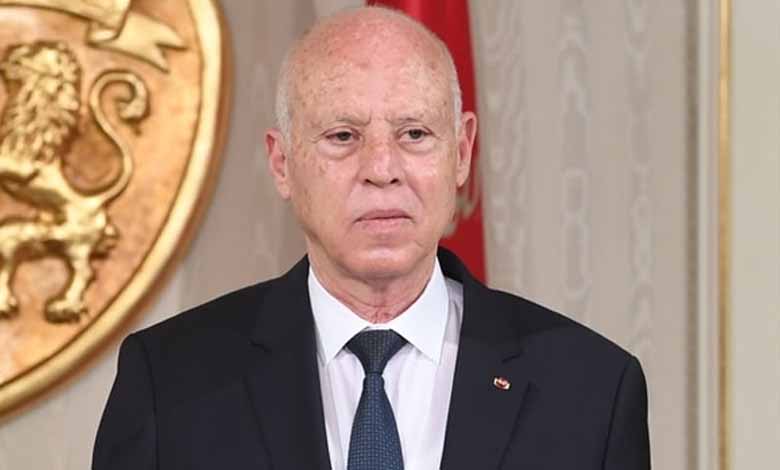Tunisia – Kais Saied continues overthrow the Ennahdha movement

The Tunisian president is continuing his measures to overthrow the Muslim Brotherhood’s Renaissance Movement and to remove it from all official institutions, which it had previously used to achieve its goals both at the popular level and at the official level.
- Tunisian President pulls the rug from under Ennahdha.. What is the relation of Qatar?
- Tunisian judiciary took actions against prominent politicians
Tunisian President Kais Saied has appointed a new election committee, which will be headed by Farouk Bouaskar, as part of his efforts to conduct an honest election away from the former body that was controlled by Ennahdha, which previously dominated the parliament and its decisions,” the official newspaper reported the day before yesterday.
The presidential decree named Farouk Bouaskar as president of the Independent High Electoral Commission, and he previously served as vice-chairman of the commission.
The two former members of the Authority, Sami Bin Salama and Mohamed Al-Telili Mansari, judges Al-Habib Al-Rabie, Mahi Al-Jadidi, Mali and Mahmoud Al-Waer, and systems and information safety engineer Mohammed Noufal Al-Frikha, were named members of the Authority.
According to the presidential decree, the new commission will consist of seven members, including three from the former electoral bodies selected by the president himself, three judges proposed by the Judicial, Administrative and Financial Councils, and a technology engineer proposed by the National Media Center (Technology). The mandate of each member in the composition of the commission will last for four years and cannot be renewed.
Tunisian journalist Jamal Ben Omar said: The selection of the committee members was previously the responsibility of the parliament, and with July’s decisions, which were based on Article 80 of the constitution granting the president the power to take exceptional measures, the Council was frozen, “The whip of the corrupt parties that ruled the country for many lean years has no resonance,” Sky News reported.
Ben Omar added: “There is no doubt in any Tunisian’s mind that the committee was subjected over the course of a decade to Brotherhood pressure and infiltration, because Ennahdha controlled the parliament that was selecting its members”.
“The decision is very important, especially since the electoral commission will oversee the legislative elections scheduled for December 17th,” he said. The president is completing the July 25th resolutions in order to organize fair elections, not on the model of 2011, 2014, and 2019.
Nabil Bafoun, the head of the dissolved committee infiltrated by Ennahdha, angered Saied by criticizing his plans to hold a referendum and parliamentary elections this year. He said there is a constitutional void that prevents this in the absence of a parliament, which many observers believe rejects Saied’s decision regarding the dissolution of parliament, and links the holding of elections and referendum to the return of parliament and its convening under the leadership of the Muslim Brotherhood’s Ennahdha Movement, according to Reuters.
Ennahdha had rejected the decree to amend the electoral commission, claiming that it came in the context of “consolidating individual rule”.












